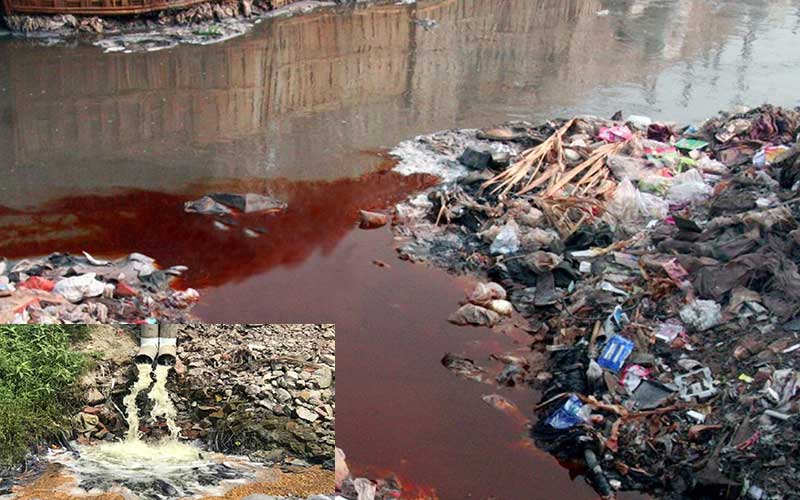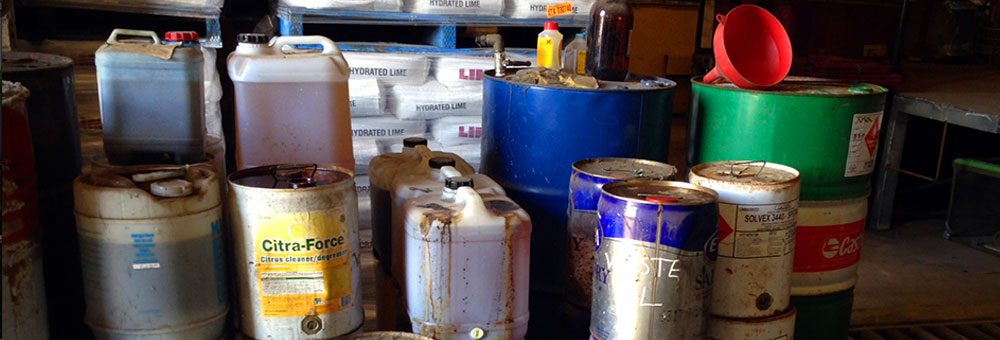Expert Liquid Waste Removal Melbourne: Quick and Affordable Providers
Expert Liquid Waste Removal Melbourne: Quick and Affordable Providers
Blog Article
Understanding the Comprehensive Refine of Liquid Garbage Disposal: Ideal Practices and Environmental Effect Factors To Consider
The management of liquid waste disposal is a multifaceted problem that requires a complete understanding of various ideal techniques and their connected ecological impacts. From the kinds of liquid waste created to the methods utilized for collection, therapy, and final disposal, each action plays an important duty in protecting communities and public health and wellness.
Kinds of Fluid Waste
Comprehending the numerous sorts of fluid waste is crucial for reliable administration and disposal techniques. Liquid waste can be extensively classified into numerous types, each needing unique handling and therapy approaches.
Industrial fluid waste usually consists of hazardous products, including hefty metals, solvents, and chemicals, produced during making processes. These wastes demand rigorous regulative conformity to secure human health and the environment. Domestic fluid waste largely refers to wastewater generated from houses, including sewer and greywater, which, although much less toxic, can still pose significant risks if improperly handled.
Agricultural liquid waste, consisting of overflow from ranches, frequently contains fertilizers and pesticides that can lead to environmental destruction if not treated sufficiently. Clinical fluid waste, produced from healthcare facilities, consists of contaminated fluids such as bodily liquids and chemicals, calling for specialized disposal techniques to avoid infection and environmental contamination.
Last but not least, oil and oil waste, typically produced by restaurants and automobile sectors, can trigger severe blockages in drain systems if not managed properly. Comprehending these classifications assists in targeted methods for treatment, conformity with guidelines, and efficient disposal techniques, eventually advertising environmental sustainability and public health and wellness safety and security.

Collection Approaches
Reliable collection techniques are critical for the appropriate monitoring of fluid waste, ensuring that it is collected safely and efficiently prior to treatment or disposal. Various techniques are used relying on the kind of liquid waste created, the quantity, and the details features of the waste.
One usual method is making use of devoted collection tanks or sumps, which are developed to record fluid waste at the resource. These systems often include pumps that facilitate the transfer of waste to bigger storage containers or therapy centers. Additionally, mobile collection devices furnished with vacuum innovation are utilized in situations where waste is generated periodically or in hard-to-reach areas.
For commercial settings, closed-loop systems can effectively reduce spills and leaks, permitting the recuperation and reuse of liquid waste. It is also necessary to educate personnel on correct collection protocols to mitigate threats related to harmful compounds.
Additionally, implementing regular maintenance schedules for collection devices guarantees optimum performance and safety and security. The assimilation of innovative monitoring systems can boost collection efficiency by supplying real-time data on waste degrees and possible risks. On the whole, effective collection approaches are foundational to lasting liquid waste administration techniques.
Therapy Processes
Treatment processes play a crucial role in the monitoring of fluid waste, changing possibly dangerous products right into multiple-use resources or risk-free effluents - liquid waste disposal. These processes can be extensively classified right into physical, chemical, and organic techniques, each customized to address particular contaminants existing in the waste stream
Physical therapy approaches, such as sedimentation and filtration, work by removing suspended solids and particulate issue. These strategies are often the initial step in the treatment chain, efficiently lowering the tons on succeeding procedures. Chemical treatments entail making use of reagents to reduce the effects of damaging compounds, precipitate heavy steels, or oxidize natural contaminants, thereby boosting the safety of the effluent.
Biological treatment procedures, including turned on sludge systems and anaerobic food digestion, utilize on the natural capabilities of bacteria to degrade natural matter. These techniques are particularly effective for wastewater containing naturally degradable contaminants. Advanced treatment technologies, such as membrane filtration and progressed oxidation procedures, are progressively used to attain higher degrees of purification.
Integrating a combination of these treatment techniques not just guarantees conformity with governing criteria but likewise promotes environmental sustainability by recuperating useful sources from fluid waste.
Disposal Options
Exactly how can organizations ensure the accountable and safe disposal of fluid waste? Reliable disposal alternatives are important for securing public health and the setting. The key methods consist of land disposal, therapy, and incineration followed by discharge into metropolitan wastewater systems.
Land disposal involves the cautious control of liquid waste in designated land fills, guaranteeing that it does not seep into bordering dirt or water. Incineration, on the various other hand, topics liquid waste to high temperatures, transforming it into ash and gases, which require correct filtration to lessen emissions. This method appropriates for contaminateds materials that can not be treated through traditional means.
In instances where liquid waste can be dealt with, organizations may go with organic or chemical therapy procedures to counteract unsafe elements before releasing the dealt with effluent into metropolitan systems. This course commonly straightens with regulative demands, guaranteeing that the effluent satisfies safety and security requirements.
Inevitably, organizations have to carry out comprehensive evaluations of each disposal choice to identify its practicality, taking into consideration elements such as waste composition, governing conformity, and possible dangers to wellness and the environment. By selecting suitable disposal approaches, companies can add to a responsible waste monitoring strategy.
Ecological Impact
The ecological impact of fluid waste disposal is a vital consideration for organizations looking for to decrease their ecological impact. In addition, the discharge of unattended or improperly treated waste into surface waters can result in eutrophication, leading to oxygen deficiency and the subsequent fatality of fish and other organisms.

To reduce these influences, companies should adopt ideal techniques such as carrying out rigorous waste therapy processes, advertising recycling and reuse, and adhering to regulatory requirements. industrial wastewater treatment By taking a proactive technique to fluid waste administration, entities can substantially reduce their environmental impact while sustaining lasting growth objectives. Ultimately, a thorough understanding of the ecological impacts associated with liquid garbage disposal is vital for informed decision-making and accountable stewardship of all-natural resources.
Final Thought
Reliable management of liquid waste is essential for protecting environmental stability and public health and wellness. By adopting ideal methods Check This Out in therapy, disposal, and collection, along with adherence to regulative requirements, the possibility for unsafe contamination of environments can be dramatically decreased. Continual innovations in innovation and processes add to lasting waste administration initiatives. Eventually, a comprehensive understanding of liquid waste disposal not only mitigates ecological effects yet also promotes a dedication to liable resource administration and ecological stewardship.
The management of liquid waste disposal is a complex problem that calls for a detailed understanding of various ideal methods and their connected environmental impacts. From the types of liquid waste produced to the techniques employed for collection, treatment, and final disposal, each step plays an important role in securing environments and public health.The environmental influence of liquid waste disposal is an important consideration for companies seeking to minimize their eco-friendly impact. Ultimately, an extensive understanding of the environmental influences connected with fluid waste disposal is necessary for notified decision-making and accountable stewardship of natural resources.
Eventually, a thorough understanding Source of fluid waste disposal not only minimizes ecological effects but additionally promotes a commitment to responsible resource monitoring and environmental stewardship.
Report this page